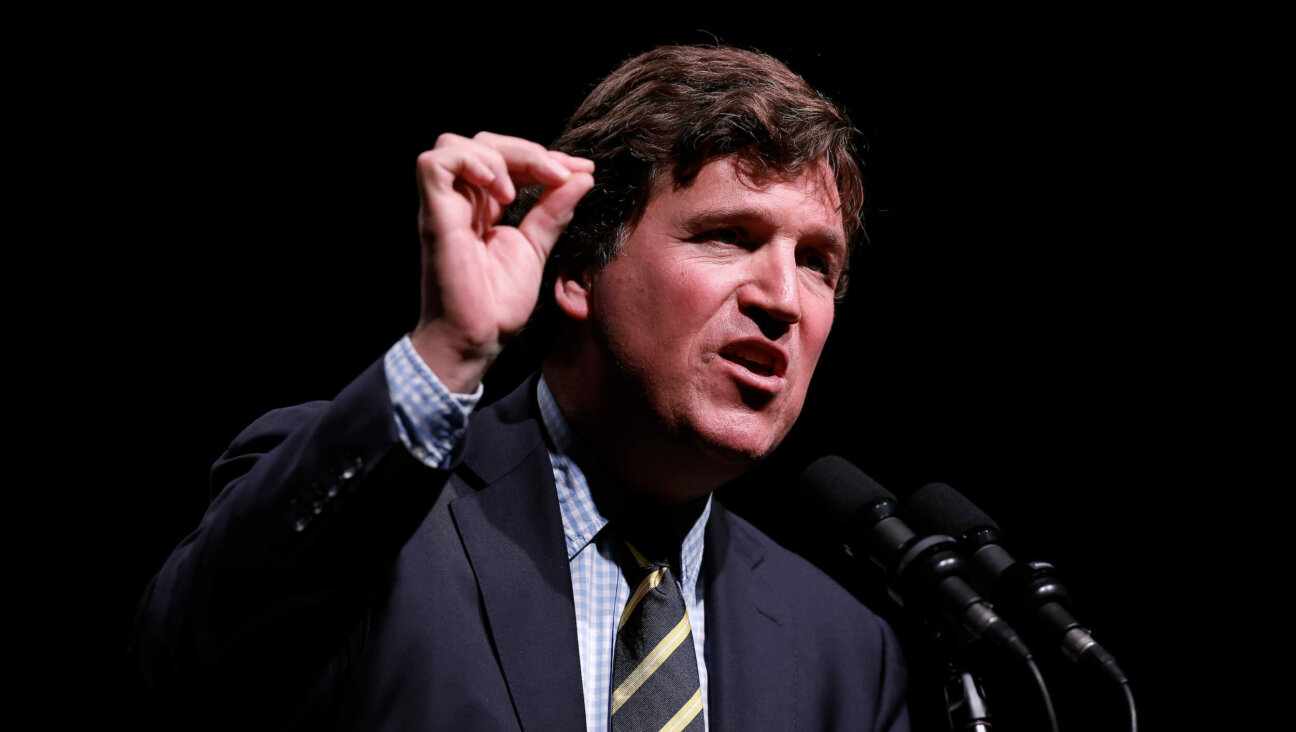David Twersky, Political Journalist and Peace Activist, Dies at 60
David Twersky, a prominent Zionist activist, political journalist and peace advocate in Israel and America, died July 16 after a long illness. He was 60.
In the course of more than 40 years in the public eye, Twersky was a nationally known student leader, a kibbutz member and Israel Labor Party leader, a Knesset aide, respected Israeli political analyst, Washington correspondent of the Forward and international affairs director of the American Jewish Congress. He was also a published poet and contributor to literary journals, including the Partisan Review. A charismatic figure with a quick wit, he left a profound impact in each of his varied careers.
Twersky was born in 1950 in the Bronx, N.Y., the son of a militant leftist garment worker who was in turn the rebellious scion of a leading Hasidic rabbinic dynasty. David was raised in a cooperative housing project in the Bronx, the Sholem Aleichem Houses, known for its diverse population of Bundists, anarchists, communists and a handful of Zionists. His mother Anna died when he was 8, and his father later remarried.
Despite their leftist politics, David’s parents enrolled him in the Ramaz School, an Orthodox day school in New York, which he attended through 12th grade. In his teens he joined Habonim, the Labor Zionist youth movement, and rose to become a national leader. He attended the City College of New York, where his professors and mentors included Elie Wiesel, Rabbi Irving Greenberg and Hebraist Abraham Halkin.
Active in antiwar protests and campus Jewish activism, he was tapped in 1970 to become national chairman of the North American Jewish Students Network, a sprawling, 1960s-style umbrella that brought together the left-wing Radical Zionist Alliance and the early havurah movement along with Lubavitch Youth, the Jewish Defense League, the Jewish Labor Youth Bund, various antiwar groups and others for annual retreats and teach-ins. In addition to traveling and speaking for the Network, he edited the Jewish Student Press Service, which served some 50 independent Jewish student newspapers.
In 1969, Twersky made the first of several clandestine trips to the Soviet Union, organized by the Israeli prime minister’s office, to meet with Jewish activists. His experiences there made him a passionate, lifelong anticommunist, which periodically set him apart from and at odds with allies on the left.
In 1974, Twersky went to Israel with a group of American Habonim graduates to establish Kibbutz Gezer on an abandoned kibbutz site near the Tel Aviv-Jerusalem highway. He was almost immediately recruited to work in Labor Party headquarters, where he was considered a protégé of Abba Eban. He served in the party’s international relations department, working closely with the London-based Socialist International, and edited an English-language political monthly, Spectrum. He also launched a literary quarterly, Shdemot, under the auspices of the kibbutz movement.
During the 1982 Lebanon War he saw combat in an artillery unit. Afterward he was tapped as a Knesset legislative aide and became part of a group of young Turks that included Yossi Beilin and Avraham Burg.
In 1986, concerned about his father’s age and health, he returned to the United States, where he took up journalism full-time. When the Forward Association launched its weekly English-language publication in 1990, he joined founding editor Seth Lipsky as deputy editor and Washington bureau chief. By now he was married to Israeli television journalist Ginny Medved and had two small children.
Twersky’s seven years in the Forward’s Washington bureau were among the most fruitful and controversial of his life. Leaping headfirst into his new role, he broke several sensational scoops early in the Clinton years that embarrassed the administration and infuriated some of Twersky’s longtime friends and allies on the left. Most famously, he unearthed information that sabotaged the job prospects of Johnnetta Cole, a Clinton transition team appointee who was considered a leading candidate for secretary of education, and Lani Guinier, a law professor who was nominated to be assistant attorney general for civil rights.
Late in the 1990s, the Twerskys left Washington and moved to New Jersey, again to be near family. David took an apparent demotion to head the MetroWest Jewish News, the weekly organ of the local Jewish federation. Over the next five years he took over the weeklies of five smaller federations and made the renamed New Jersey Jewish News a heavyweight player in state politics, alternately wooed, consulted and feared by gubernatorial aides and U.S. senators.
Finally, during the second Bush administration, Twersky returned to global politics, signing on with the American Jewish Congress as director of international affairs. Among other things, he conducted critical back-channel diplomacy with the governments of Pakistan, Venezuela and Russia. He retired in 2008 when his cancer began to limit his mobility.
Word of Twersky’s death produced a flood of emotional transatlantic email messaging from individuals from various periods in his life, many declaring that he had changed their lives. Zev Yaroslavsky, a Los Angeles County supervisor and onetime Habonim bunkmate, wrote that David “was one of the most brilliant human beings I ever knew,” and that he “had a profound influence on me and my thinking” during their camp days as high school students. “What I loved about him was that he took what he did seriously, but he didn’t take himself too seriously.”
Muki Tsur, an author, historian and former secretary-general of the kibbutz movement, wrote that Twersky was “a rebel, a dead-serious jester, a man of the people and a dreamer.”
He was, Tsur added, “a figure of hope for all of us. Israel lost out when he left us years ago out of sensitivity to our failings and his desire to preserve his love unblemished. And yet American Jewry couldn’t quite absorb him, because he was the antithesis of bourgeois, not in rhetoric but in the way he lived his life.”
Contact J.J. Goldberg at [email protected]

















